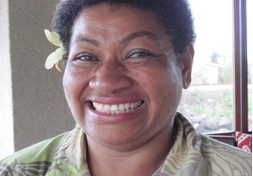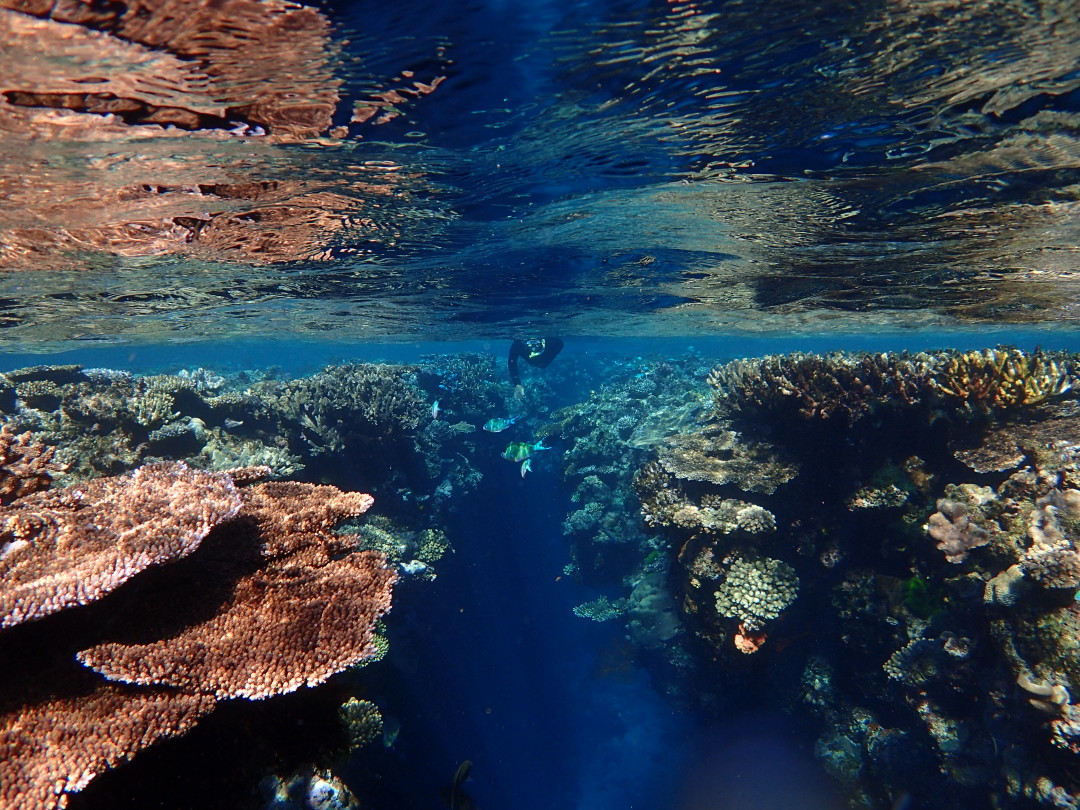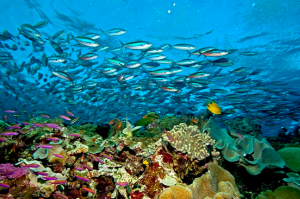Famous for its soft coral diving, white sand beaches and pristine natural environment Fiji is a delightful destination. The snorkeling is very accessible and there are many different marine environments. There are over 1200 varieties of reef fish and more than 300 types of hard and soft coral are found in the Fijian waters. This area features brilliant soft corals, sharks, turtles, mantas, anemones, clownfish, and delicate seahorses and pipefish.
Equally important, Fiji is home to some of the friendliest people in the world.
 A visit to a Fijian village on one of the remote islands is a “must do” and includes a Kava ceremony and dances.
A visit to a Fijian village on one of the remote islands is a “must do” and includes a Kava ceremony and dances.
My live-aboard trip would be nicely complemented with an island stay. Fiji is made up of 300 islands and there is quite a variety of experiences. You can stay on a small sandy island with one intimate resort or you can stay on one of the larger islands like Taveuni or Vanu Levu where there are a range of accommodations. During your stay you can explore beaches and lush rainforests, waterfalls and several villages.
Water temps in July-75-80degrees
TRAVEL REQUIREMENTS AND GENERAL INFO
Passport and Visa: To enter Fiji, you will need a passport valid for at least six months after your scheduled departure date from Fiji. You will also need proof that you have enough money to travel and that you have an onward or return ticket. You don’t need a visa if you are staying less than 4 months.
Currency: The Fijian dollar is the basic unit of currency
Electric Current: The electric current is 240 volts AC 50Hz. Fiji has three-pin power outlets, which are identical to Australia and New Zealand
Health Fiji is free from malaria, yellow fever and major tropical diseases. Inoculations are only required if travelling from an infected area
Cultural Sensitivity: It is important to dress modestly when away from hotels and resorts and particularly when visiting a Fijian village. Avoid wearing a hat in a village, it is considered an insult to the village chief. It is also insulting to touch someone’s head. It’s best to not wear shoes if visiting someone’s house. When visiting a village it is customary to present an inexpensive gift of ‘yaqona’ or kava to the “Turaga Ni Koro”, the traditional head of the village. Be prepared to shake hands and answer personal questions as to where you are from, whether married; and, if so, how many children.



